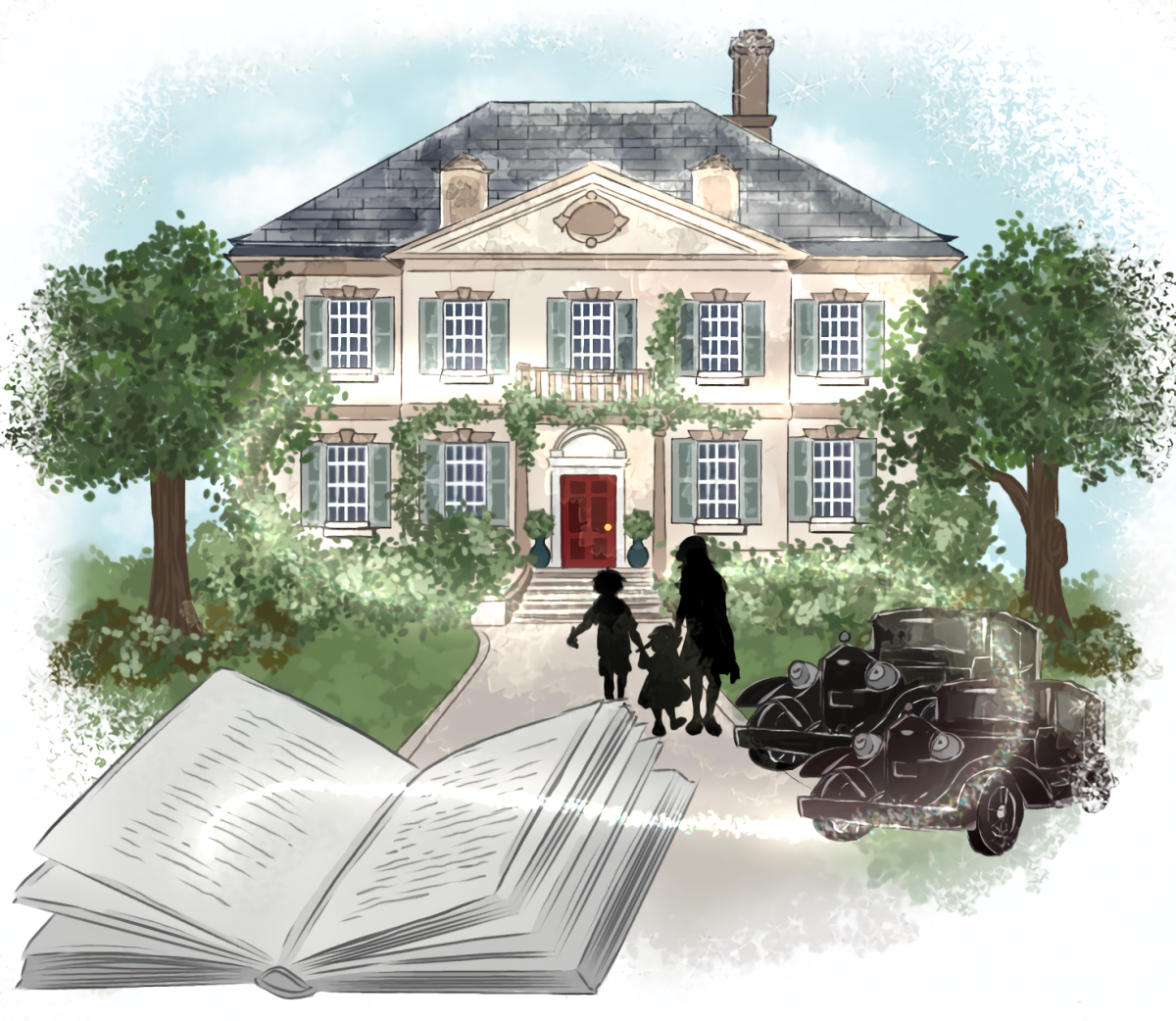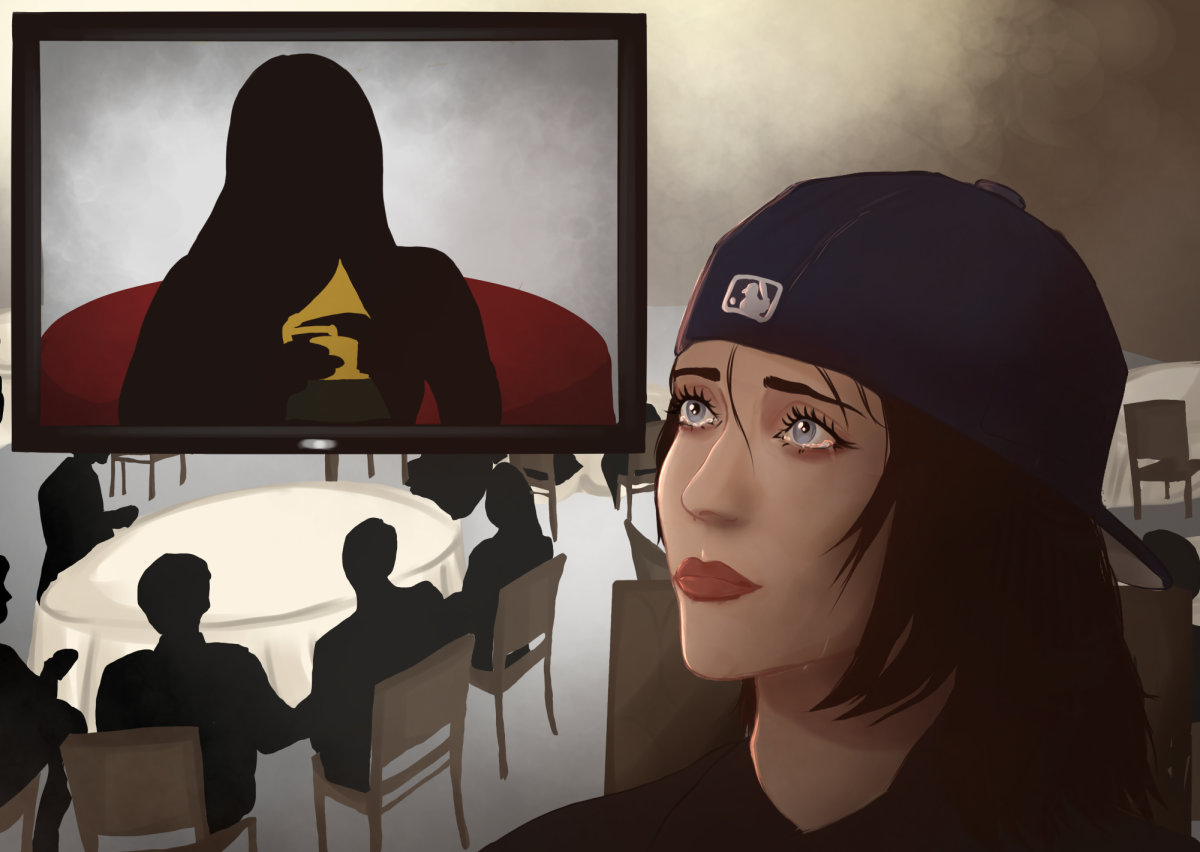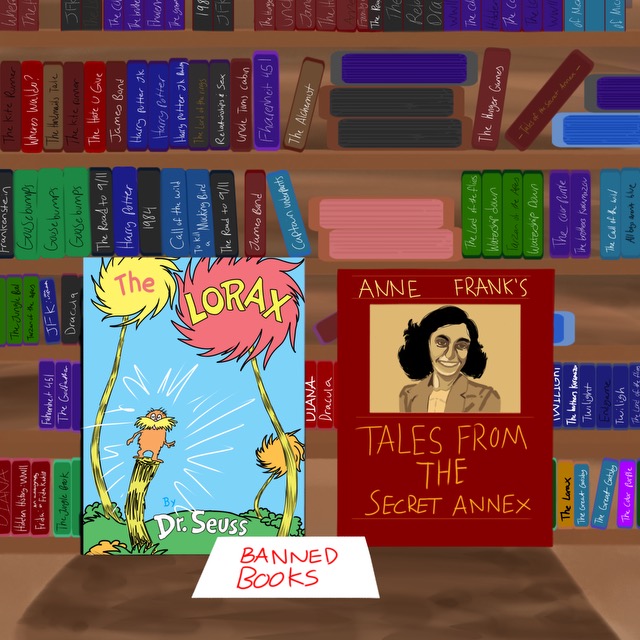As of Sept. 2024, the BVH library had a major expansion concerning graphic novels and manga. Worldwide, the U.S. has had discussions about major book bans that could affect what students have access to in their school libraries. This mainly applies to nonfiction books in the school setting, but what about fiction? A book being labeled ‘fiction’ does not deprive it from any messages or emotions that one can feel when reading a story. A fictional book can have an impact psychologically on the reader and influence one’s decisions, thinking and perspective of their own lives. It can even be preferred over nonfiction. BVH librarian Adrienne Marriott gives her take on why fiction is favored.
“[It is] because most nonfiction is not written like a story. It is written as a series of facts that are divided up interestingly. More recently, there is this [genre] called narrative nonfiction, where authors are making an effort to take nonfiction ideas and weave them into a more story-like format, which is more in line for most human brains of how they absorb things,” Marriott said.
BVH Junior Ally Scott is currently enrolled in IB (International Bachelorette) English. The class requires a higher level of critical thinking when reading selected books and has students thinking about any deeper meanings within the novels they are annotating. Regarding the topic of why fiction is more inclined to, she adds onto Marriotts statement about how the author dictates the narrative and emotions.
“I think [fiction is preferred] because the author has more control over the storyline. When writing nonfiction, there is more of this documentorial aspect of the writing where you are closely following a fact or event. In nonfiction, you can alter events to be as impactful as you want them to be,” Scott said.
Senior and BVH IB English student, Capri Molina, much like Scott, has had her fair share of being introduced to impactful books within her time as a reader and IB student. Given her status as a senior, she has likely heavily improved her reading and critical thinking skills within the English department. While agreeing with Scott’s statement, Molina had more to share about reality within fiction novels.
“I think when you read about how a character is dealing with different hardships in their life, different traumas and how they cope with it, their own decisions, you can reflect on your own decisions as well,” Molina said.
As Molina shared, it is the connection between reality and fiction that draws readers toward the genre of fiction rather than nonfiction. It is easier to understand and connect to a fictional story and character with realistic and personal emotions lying within the story. When compared to a more factual based book, it becomes harder to emotionally connect with a piece of history than letting your mind be free to imagine the world as personally seen and even relate to your own life. Diversity matters when it comes to a book, and Marriott explains it from her perspective.
“It [The Novel, Murmur of Bees] also has an interesting [aspect of] magical realism and themes of nature which resonated with me. I feel best when I am outside in nature and observing things. The main character in the book has a deformity, so he is [abandoned] as an infant. But, the bees follow him everywhere and protect him with this interesting message of working with nature rather than against it,” Marriott said.
Marriott provides an insightful view of how others may be drawn to other types of categories within the genre of fiction. While this is from a professional standpoint from someone working within a library, Scott provides her standpoint as a reader, specifically in her way of thinking when looking at diversity within characters within the novels.
“As a black woman, I feel like I really pay attention to how characters and representation affects personal growth and identity. For me personally, in all forms of literature (movies and film too), having representation not only makes those represented feel seen, but [it] also allows for others to gain insight on a group of people they might not otherwise understand as well.”
When it comes to reality within fiction, Scott hit the nail on the head from the viewpoint of most readers. Readers look for characters who represent them in any shape or form, to have that connection in a world where imagination is at its best. Imagination is when readers are sometimes able to think of a better life that just might seem impossible to them, or even compare their own lives to characters who have gone through the same thing. Molina gave her insight from a more analytical perspective between both reality and fiction.
“You learn about their background and how it affects their circumstances, [as well as] how it affects their decisions and the way they act. I think a lot of times in life we make judgments. We make harsh assumptions versus reading them. You kind of understand the character’s background and you think about how a person’s background in real life can influence their own behavior,” Molina said.
When dealing with fictionary books, they are particularly good for one thing: escapism. Escapism comes in many forms and for many reasons all derived from the reader. This makes fictional characters more impactful to some readers looking to escape reality even for a moment perceiving something that they could wish they could attain. Marriott added more to the topic.
“I think that reading a story where someone is overcoming some kind of emotional challenge, especially if it is one that you may have had yourself, it helps for you to not feel othered. If a character maybe shares some similarities with you, you have a feeling that, ‘hey, wait, I am not the only one,’ which is a great thing to have, especially if you are struggling,” Marriott stated.
At times where people struggle in their own ways, it seems hard to look for the bright side of things. People may not feel supported or are alone in some situations. Reading allows readers to feel real emotions in a fictional setting, with escapism allowing them to feel hope for even just a second and to continue on with their lives despite being in such a dark place.
“This is part of escapism and a nice little trip from reality, and I think a lot of people need that. Sometimes reality is very harsh, so reading can kind of provide a little comfort in all the darkness,” Molina said.









